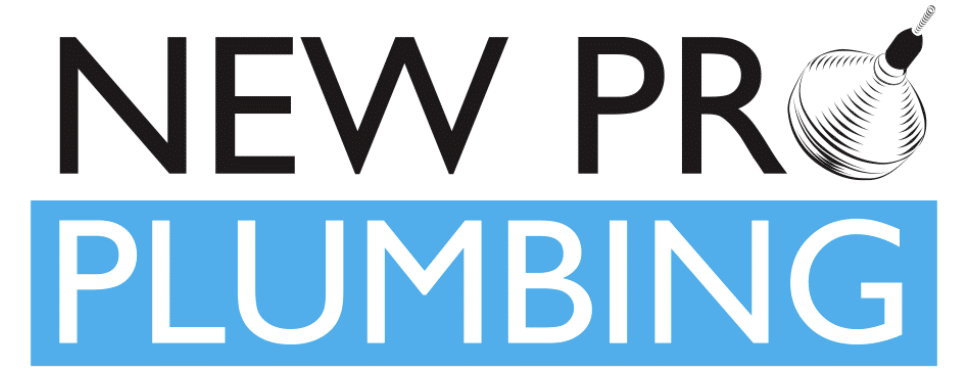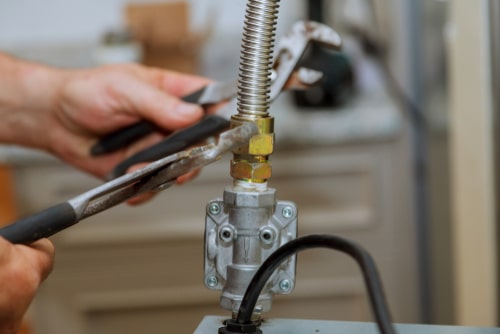Gas lines are essential for many homes, providing fuel for heating, cooking, and more. But like any part of your home, gas lines can develop issues over time. Recognizing when there’s a problem with your gas line is crucial for the safety of everyone in your household. Waiting too long to address gas line problems can lead to dangerous situations and costly repairs.
In this article, we’ll discuss how to recognize the signs of a gas leak, understand the common causes of gas line damage, and learn the important steps to take if you suspect a leak. We’ll also look at the benefits of calling a professional for gas line repair, ensuring your home stays safe and your gas lines function properly.
Recognizing the Signs of a Gas Leak
Gas leaks can be dangerous, so knowing how to recognize the signs is crucial. Early detection can prevent potential disasters, so let’s go through some common indicators.
1. Smell: Natural gas is odorless, but utility companies add a chemical that smells like rotten eggs. If you notice this foul odor, you might have a gas leak. This smell is usually strong and hard to miss.
2. Hissing Sounds: If you hear a hissing or whistling noise near a gas line or appliance, this could indicate a gas leak. The sound is produced by gas escaping from a small crack or hole in the line.
3. Dead Vegetation: If you see dead or discolored plants in your yard near the gas line, it might be a sign of a leak. Gas can kill plants by interrupting their normal respiration process.
4. Physical Symptoms: Gas leaks can cause symptoms like dizziness, headaches, nausea, or difficulty breathing. If you or anyone else in your home experiences these symptoms suddenly and without explanation, a gas leak could be the cause.
5. Bubbles in Water: Sometimes, gas leaks occur outside and can cause bubbles in standing water on your property, such as puddles. These bubbles indicate that gas is escaping into the water.
Recognizing these signs early can help you take quick action to ensure the safety of your home and family.
Common Causes of Gas Line Damage
Understanding what can cause gas line damage is the first step in preventing leaks and maintaining a safe home environment. Here are some common causes of gas line damage:
1. Natural Wear and Tear: Over time, gas lines can deteriorate due to age and regular use. Materials like steel can corrode, leading to weak spots and potential leaks. Regular inspections can help catch these issues early.
2. Construction and Excavation: Digging or construction work around your home can accidentally damage gas lines. Always call 811 before you dig to ensure you’re not putting your gas lines at risk.
3. Extreme Weather: Severe weather conditions like floods, earthquakes, and even extreme temperature changes can damage gas lines. Movement in the ground during these events can cause lines to rupture or crack.
4. Poor Installation: Incorrect installation of gas lines and appliances can be a major cause of leaks. Always hire a qualified professional to handle gas line installation to ensure it is done safely and correctly.
5. Rodent Activity: Rodents sometimes chew on gas lines, causing damage. Regularly inspecting your gas lines for signs of gnaw marks can help you catch this issue before it leads to a leak.
By being aware of these common causes of gas line damage, you can take steps to prevent them and keep your home safe. Routine inspections and proper installation practices go a long way in maintaining your gas lines.
Steps to Take If You Suspect a Gas Leak
If you suspect a gas leak, it’s crucial to act quickly to ensure everyone’s safety. Here are the steps you should take:
1. Evacuate Immediately: The first thing to do is leave the area immediately. Do not try to locate the source of the leak yourself. Avoid using any electrical devices, including light switches and phones, as they can create a spark that could ignite the gas.
2. Avoid Open Flames: Do not light any matches, candles, or lighters. Even starting a car can be dangerous if it’s near the suspected leak, so avoid using vehicles.
3. Shut Off the Gas Supply: If you know where your gas meter is and it’s safe to do so, turn off the gas supply. The shut-off valve is usually located near your gas meter and can be turned off with a wrench.
4. Call for Help From a Safe Distance: Once you are at a safe distance from your home, call your gas company or emergency services. They have the expertise and equipment to handle gas leaks safely.
5. Wait for Clearance: Do not re-enter your home until professionals have inspected it and declared it safe. They will ensure that there is no ongoing leak and that it’s safe to turn the gas back on.
Taking these steps seriously can prevent dangerous situations and ensure the safety of your family and home.
Benefits of Professional Gas Line Repair
Hiring a professional for gas line repair offers numerous benefits. While it may be tempting to handle small fixes yourself, the risks associated with gas lines make professional help the safer and smarter choice.
1. Safety First: Professionals are trained to handle gas lines safely. They have the expertise to identify and address issues without causing additional risks. This ensures your home and family remain safe during and after the repair.
2. Proper Diagnosis: A professional can accurately diagnose the problem. They can identify issues that might not be immediately visible, ensuring a thorough repair. This prevents future leaks and extends the lifespan of your gas lines.
3. Quality Materials and Tools: Professional plumbers use high-quality materials and tools that are designed for gas line repairs. This guarantees a durable and long-lasting fix that DIY solutions might not provide.
4. Peace of Mind: Knowing that a professional has repaired your gas line gives you peace of mind. You can rest assured that the job was done correctly, reducing the worry of future leaks or issues.
5. Compliance with Regulations: Professional plumbers are aware of local codes and regulations related to gas line repairs. They ensure that all work is compliant, avoiding any legal issues and ensuring the safety of your home.
Investing in professional gas line repair is a smart decision that protects your home, ensures long-term safety, and provides peace of mind.
Conclusion
Gas line maintenance and repair are critical for the safety and efficiency of your home. Recognizing the signs of a gas leak, understanding common causes of gas line damage, and knowing what steps to take if you suspect a leak can prevent dangerous situations. These proactive measures help ensure that your home remains a safe haven for you and your family.
If you ever suspect a gas leak or need gas line service repair, don’t hesitate to call the experts. At New Pro Plumbing, we’re here to provide you with safe, reliable, and professional gas line services. Contact us today to schedule an inspection or repair and keep your home safe and sound.
















